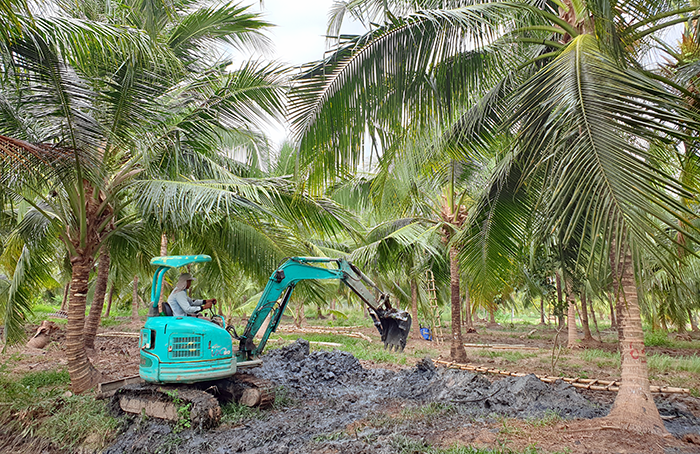
Farmers in Vinh Long province renovate coconut gardens.
Great potential, great challenges
According to the Vietnam Coconut Association, in the first 6 months of 2025, the Vietnamese coconut industry achieved an export turnover of 489 million USD, of which whole coconuts (dried and fresh coconuts) were 216 million USD, an increase of 40% over the same period last year. In 2024, the total coconut export turnover reached 1.089 billion USD, the industry set a growth target of 20% in 2025, reaching more than 1.2 billion USD. Currently, the whole country has 202,000 hectares of coconut, of which 181,000 hectares are harvested, with an average yield of 125.6 quintals/ha, and an output of 2.28 million tons. By 2030, the coconut area of the whole country is expected to reach 195,000-210,000 hectares, of which the key area of the Mekong Delta is about 170,000-175,000 hectares. About 30% of the area is produced according to GAP or equivalent processes and has a growing area code for export.
In recent times, although coconut trees have adapted quite well to climate change, the reality is that fruit output and quality have decreased, and pests and diseases have increased. Raw coconut prices have fluctuated strongly, sometimes increasing suddenly, putting processing enterprises at risk when they have signed fixed-price export contracts. In addition, the Vietnamese coconut industry is still weak in deep processing and preserving fresh coconuts for drinking water, and the technology is still semi-manual. Meanwhile, major export markets such as the US, EU, and China are increasingly tightening technical standards and food safety, requiring Vietnamese coconut products to improve.
According to Mr. Huynh Khac Nhu, General Director of Tra Bac Joint Stock Company (Trabaco), domestic raw material sources are not enough to meet production needs, as Vietnam only accounts for about 2% of the global coconut area, but creates 3 times more added value thanks to product diversity and high processing content. “Members of the Asia- Pacific Coconut Community have strict requirements on the uniformity of varieties and tree ages to ensure the quality of export materials. Meanwhile, in Vietnam, most coconuts are still grown on a small household scale, with only 2% of households having a scale of 5 hectares or more, leading to differences in harvesting and post-harvest preservation techniques. In addition, Vietnam's coconut productivity is still low compared to other countries in the region. On average, 1 hectare of coconut in Vietnam has about 150 trees, mostly mixed coconuts, yielding only 90 fruits per tree. Meanwhile, Malaysia is aiming for a yield of 150 fruits per tree and a planting density of 200-250 trees/ha thanks to the application of high-yielding varieties and advanced farming techniques. This is a trend that Vietnam needs to quickly adapt to if it wants to bring the coconut industry to high economic efficiency,” Mr. Nhu emphasized.
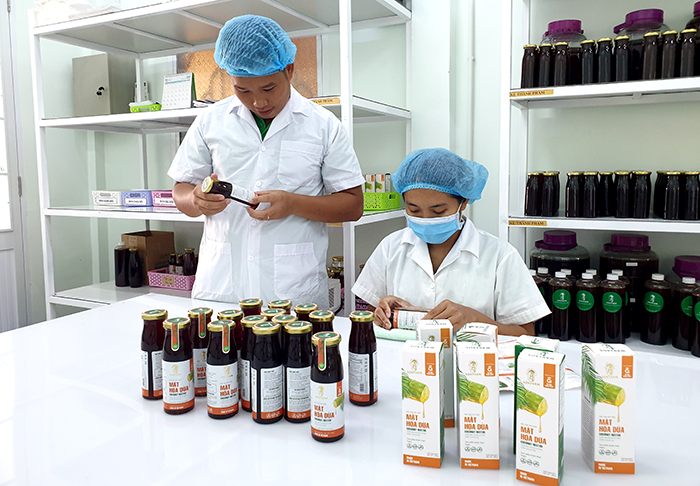
Processing coconut nectar into products of high economic value in Vinh Long.
Enhance the value of coconut trees
Recently, at the Forum "Communication on health management of Vietnamese coconut trees to meet production requirements associated with consumers", Mr. Nguyen Quy Duong, Deputy Director of the Department of Crop Production and Plant Protection, said that the coconut industry still has a lot of room for development, especially in increasing added value, diversifying products and applying science and technology in production. Therefore, it is necessary to develop high-quality coconut varieties, suitable for both fresh consumption and processing; with good productivity, adaptability to climate change, serving the orientation of expanding raw material areas. Focus on innovating processing, preservation and post-harvest technology, in order to increase the deep value of coconut products, meeting domestic consumption and export needs. In addition, the coconut industry does not only export tangible products, but also needs to aim for "smokeless products" such as coconut garden tourism or "heavenly products" such as carbon credits, new values from the outstanding CO2 absorption capacity of coconut trees.
Also at the forum, leaders of management agencies, research institutes, enterprises, cooperatives, and gardeners also presented the current situation and solutions to improve the quality of coconut raw material areas, towards a smart farming model, reducing dependence on chemicals, enhancing biological measures; applying advanced technology in preserving and processing to diversify coconut products; developing the domestic market in line with international standards; new research on breeding, preserving valuable genetic resources, and farming techniques to adapt to climate change; coconut brand development strategy associated with planning raw material areas and investing in processing infrastructure...
According to Ms. Le Thanh Truc, Lac Dia Sustainable Agriculture Cooperative, the unit is aiming to improve and increase the value of lands heavily affected by climate change and saltwater intrusion. In dry, barren lands that are no longer suitable for rice cultivation, people can switch to growing coconuts, a crop that is highly adaptable to harsh conditions and easy to care for. “Even when coconut trees do not bear fruit, they still flower and can exploit nectar to process into products of high economic value. This is considered a new direction to help people increase their income sustainably while still taking advantage of the advantages of difficult lands. Among the products made from coconut nectar, coconut nectar wine is receiving attention and positive reception from consumers, opening up development potential for a model of coconut cultivation and processing adapted to climate change,” Ms. Truc shared.
According to Mr. Pham Hong Duong, Deputy General Director of Ben Tre Import-Export Joint Stock Company (Betrimex), the market demand for organic coconuts is increasing, requiring localities to have synchronous programs to protect and develop this raw material area, from the stage of tracing the origin, caring for crops, preventing pests and diseases by biological measures to using natural enemies instead of chemical pesticides. "If pests and diseases arise for just 1 month, we can lose the output of the following year" - Mr. Pham Hong Duong said.
Mr. Chau Huu Tri, Deputy Director of the Vinh Long Provincial Agricultural Extension Center, assessed: From economic value to ecological value, coconut trees have been recognized as a national key crop, with more than 183 enterprises deeply involved in the value chain. Therefore, the Central Government needs to develop more specific policies for the coconut industry, including a master plan, especially for 24,000 hectares of organic coconut, which needs to be re-certified in the future, while clearly assessing the practical difficulties in the implementation process. In addition, it is necessary to further strengthen the connection between the "4 houses" - the State, scientists, schools and farmers, because the current connection chain is still loose, it is necessary to build a clear legal mechanism to bind responsibilities in cooperation. "Vietnam can completely master 90% of coconut processing technology. The important thing is to continue to innovate technology, create differences and exploit multi-value, otherwise it will fall behind" - Mr. Tri emphasized.
Article and photos: BINH NGUYEN
Source: https://baocantho.com.vn/tai-cau-truc-nganh-hang-ti-do-theo-huong-ben-vung-a193710.html



![[Photo] Prime Minister Pham Minh Chinh attends the Patriotic Emulation Congress of the Ministry of Foreign Affairs for the 2025-2030 period](https://vphoto.vietnam.vn/thumb/1200x675/vietnam/resource/IMAGE/2025/11/10/1762762603245_dsc-1428-jpg.webp)
![[Photo] Prime Minister Pham Minh Chinh attends the annual Vietnam Business Forum](https://vphoto.vietnam.vn/thumb/1200x675/vietnam/resource/IMAGE/2025/11/10/1762780307172_dsc-1710-jpg.webp)



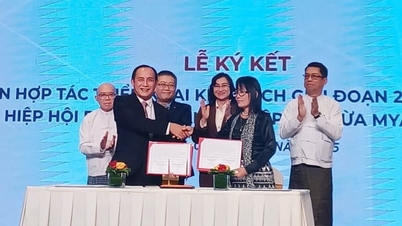

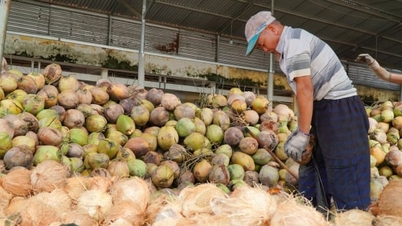
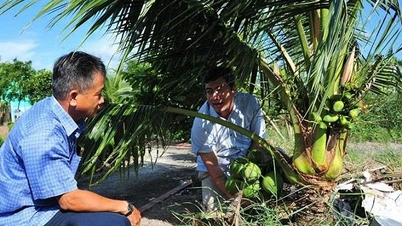

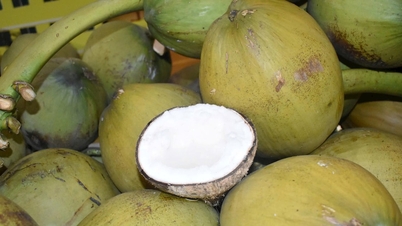

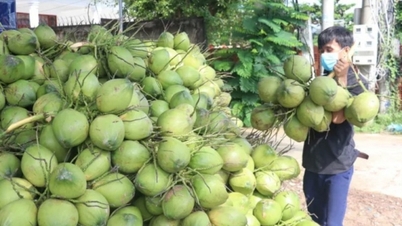





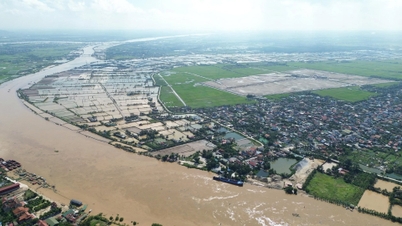




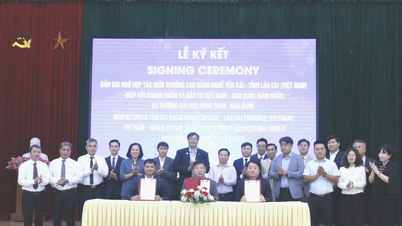

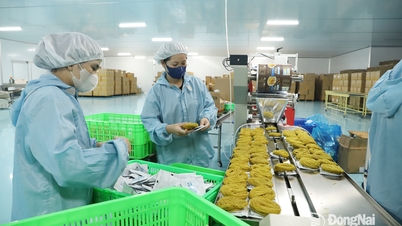










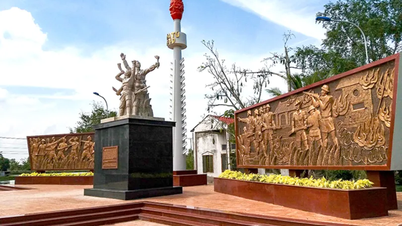












































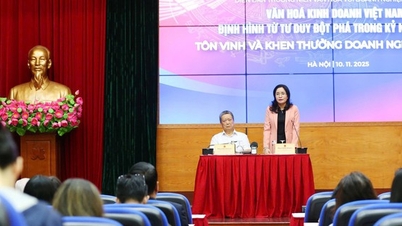
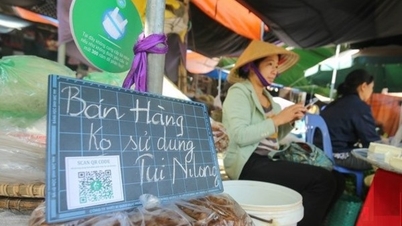




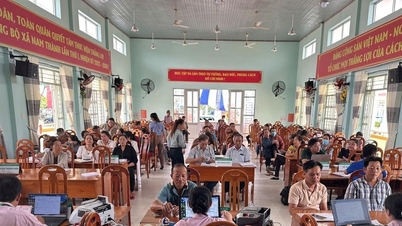
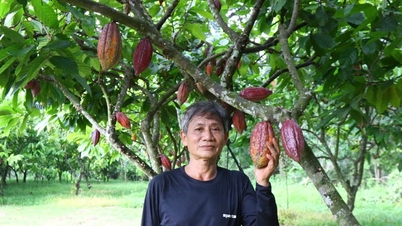
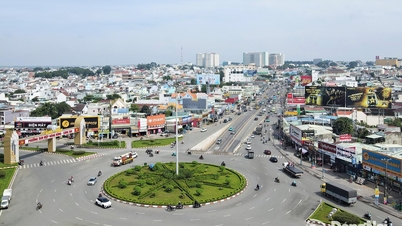
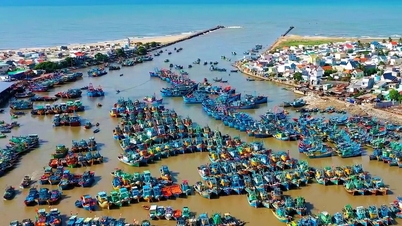


![Dong Nai OCOP transition: [Article 3] Linking tourism with OCOP product consumption](https://vphoto.vietnam.vn/thumb/402x226/vietnam/resource/IMAGE/2025/11/10/1762739199309_1324-2740-7_n-162543_981.jpeg)








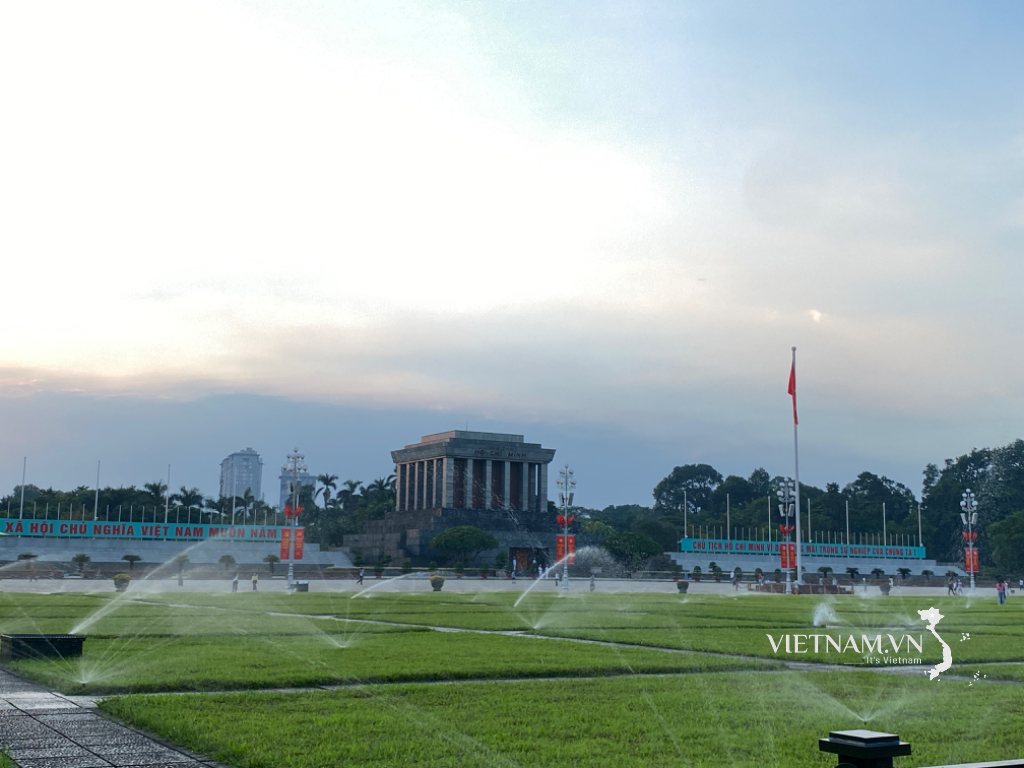


Comment (0)